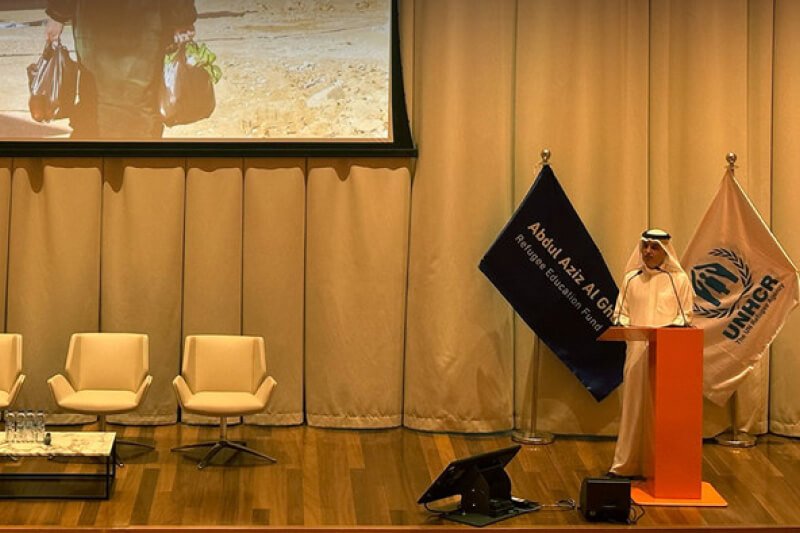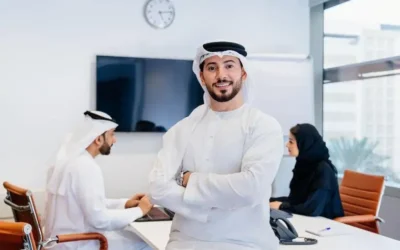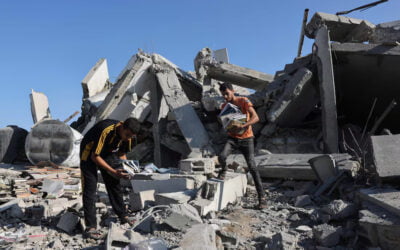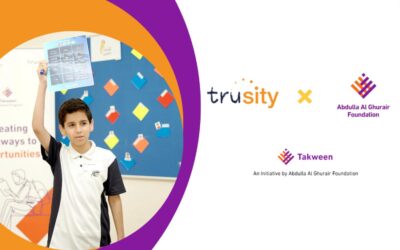UNHCR launches Islamic Philanthropy Report with Abdulaziz Al-Ghurair Refugee Education Fund at joint event in Dubai
- Agency in partnership for the first time to demonstrate strength of Gulf support
DUBAI: The UN High Commissioner for Refugees has launched its annual Islamic Philanthropy Report for the first time in partnership with the Abdulaziz Al-Ghurair Refugee Education Fund at a joint event in Dubai.
The report details the importance of engaging Islamic philanthropy tools and their increased role in attending to the needs of displaced people globally.
There are now more than 100 million forcibly displaced people worldwide, according to the UN. The number is likely to reach 117 million by the end of the year.
Khaled Khalifa, UNHCR’s senior adviser and representative to the Gulf Cooperation Council countries, said the Muslim world or Organization of Islamic Cooperation states accounted for more than 50 percent of the caseload of refugees globally.
According to the OIC, Muslim populations are disproportionately affected by disasters and conflict.
The UN began the Refugee Zakat Fund in 2017 due to an increasing desire by donors and institutions to provide funds to refugees. The fund has helped around 6 million forcibly displaced persons since its inception.
The UNHCR assisted over 1.5 million refugees and internally displaced people in 21 countries with zakat and sadaqah contributions in 2022.
Partners included His Excellency Sheikh Thani bin Abdullah bin Thani Al Thani and Mohammed Bin Rashid Al Maktoum Global Initiatives, in addition to UNHCR’s global Ramadan and winter campaigns, and the Refugee Zakat Fund mobile app.
Zakat, an Islamic financial term, is one of the pillars of Islam. It requires all Muslims to donate a portion of their wealth to charity. Muslims must meet a certain threshold before they can qualify for zakat. Once they do, the amount given is 2.5 percent of an individual’s total savings and wealth.
Over the last 15 years the Middle East has experienced a dramatic flood of refugees and forced migration, particularly due to the wars in Syria and Iraq, as well as those fleeing wars and failed states in Libya, Somalia, Sudan, Yemen, and Afghanistan.
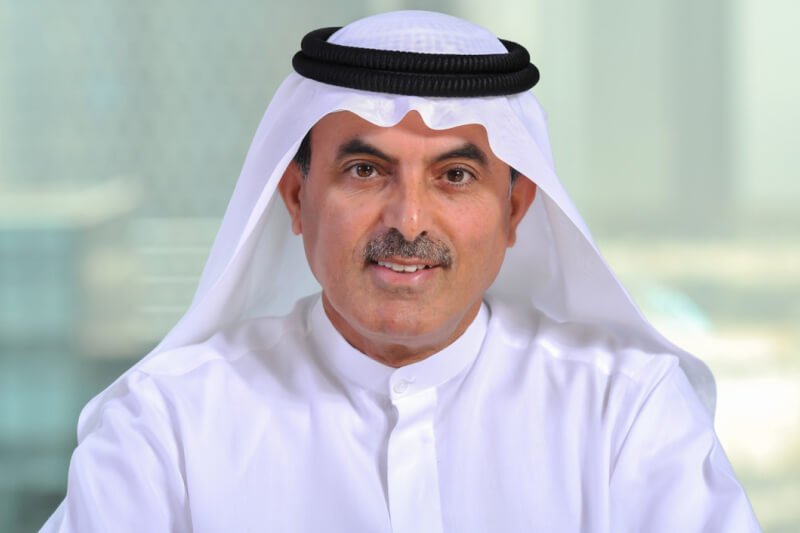
His Excellency Abdulaziz Al-Ghurair, chairman of Abdulla Al-Ghurair Foundation, said during the event’s keynote speech: “The Middle East and North Africa is facing grave challenges.
“The region has one of the highest unemployment rates globally for youths under 25 and is home to over 16 million refugees and displaced people.
“We cannot ignore this reality around us. If Islamic philanthropy is effectively applied, as it was intended, it will lead to a long-term sustainability that gives the most vulnerable the chance to become financially independent and self-sufficient.”
Al-Ghurair in 2018 launched the Refugee Education Fund which focuses on beneficiaries in Lebanon and Jordan. It provides $32 million to support 20,000 refugees to enroll in secondary, vocational, and tertiary education over three years.
Jordan hosts 760,000 refugees and asylum seekers registered with UNHCR. Some 670,000 of those are from Syria, making Jordan the second-largest host of Syrian refugees per capita globally behind Lebanon.
Danah Dajani, director of partnerships and programs at Abdulla Al-Ghurair Foundation, told Arab News: “Prior to the refugee crisis, Jordan and Lebanon faced huge unemployment and poverty so they had a double burden, and we are trying to alleviate this through education, which provides access to jobs and a better life.”
It is increasingly difficult for refugees to gain access to education. According to the UNHCR, 68 percent of school-aged refugee children are enrolled in primary school, 37 percent of refugee youth are enrolled in secondary education, while only 6 percent are in higher education.
Al-Ghurair told Arab News: “Access to equitable and quality education is at the heart of the Refugee Education Fund, to enable a better future for refugees across the region.
“With the help of partners like UNHCR, the fund has been able to substantially improve the life chances of more than 60,000 vulnerable youth in Jordan and Lebanon since the launch in 2018.”
This year marks the first time the Islamic Philanthropy Report has been launched in partnership with the Refugee Education Fund.
The report indicates that the Refugee Zakat Fund has enabled UNHCR to support around 6 million refugees and IDPs in 26 countries since it was piloted in 2017.
This figure includes more than 1.5 million refugees and IDPs assisted in 2022.
Al-Ghurair told Arab News: “Islamic philanthropy is one of the largest untapped resources for joint humanitarian work.
“This is significant at a time when we are addressing multiple global crises. We need to collaborate and make concerted efforts to ensure giving is efficient and effective.”
There has been an increased recognition over the last five years of the potential for Muslim philanthropy, with the UN calling for innovative methods and new partnerships, such as the Zakat Refugee Fund, to utilize Islamic financial resources to search for solutions.
“Islamic philanthropy itself is as old as Islam,” says Khalifa. “We are only utilizing the tools of Islamic philanthropy that have been tried and tested over the centuries, but it is something new for the UN. We decided to step into this field because we felt that we could add value, because we saw that 50 percent of the caseload of displaced persons were coming from the states of the Organization of Islamic Cooperation.”
Khalifa says the last 10 years have seen no drop in the numbers of people forcibly displaced.
He said: “The trajectory is going up because of conflicts that contribute to 80 percent of the problem worldwide, due to persecution in many places because of human rights abuses, and most recently because of climate issues.
“We are also witnessing a spike in the number of climate displacement persons worldwide, and we hope that individuals and governments and institutions will feel the plight of people in need, especially because some of them are suffering or facing a double crisis at the same time, like the Syrians who are really living in a state of emergency due to the recent earthquake.”
Khalifa added that the UN also covers the expenses of the distribution of the fund from its general budget. Moreover, the money from the fund is distributed in cash.
He added: “We receive a million dollars, we distribute a million dollars, and we report on a million dollars, and we cover everything else, even the bank transfers from other sources.”
UNHCR and the Islamic Development Bank launched the Global Islamic Fund for Refugees at the end of March 2022. The fund is a sustainable and Shariah-compliant resource mobilization instrument that will open new Islamic philanthropy funding in support of millions of forcibly displaced people.
Khalifa said: “Until now, most of our Islamic revenue funding has come from the Gulf.
“Saudi Arabia is one of our largest supporters and donors, particularly through the King Salman Humanitarian Aid and Relief Center.”
Al-Ghurair told Arab News: “Philanthropists can help elevate funds where resources are constrained to support better results, and the accountability will generate greater trust that helps support governments to meet the increasing demand for education as the challenges multiply.
“With Ramadan approaching, I urge all fellow philanthropists to come together to support and improve the lives of the future leaders of tomorrow.”
